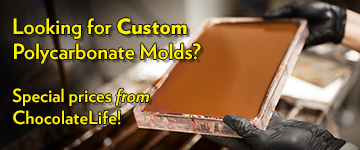Interesting stuff guys - thanks. The notion of H202 as a preservative in a highly oxidative susceptibility product such as milk powder is strange to me at first blush, given that H202 is SUCH a strong oxidizer. Certainly it's an effective microbiological suppressant, but it'll absolutely destroy the flavor of the fat in the milk. There are much, much better ways to protect quality than the use of this. My guess - it's the cheap option!
Ramya - many modern chocolate factories are still using stone grinders, which are quite effective - so just because something's old doesn't mean it's not useful 8-) For something like H2O2 in milk it surprises me as there are much more effective ways to do the same thing, w/o making it taste bad.

